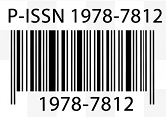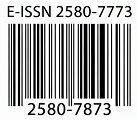DINAMIKA SIKAP DAN RESPONS MASYARAKAT MUSLIM TERHADAP PENERAPAN SHAF BERJARAK DI KABUPATEN GOWA
Abstract
This research aims to elaborate on the Muslim community's response to implementing spaced prayer rows in mosques during the Covid-19 pandemic as well as the factors causing this resistance. This research is qualitative with a phenomenological and sociological approach. Primary data consists of regular congregation members and administrators of several mosques in the Gowa Regency. The data collection methods used were observation, interviews, and documentation. Data processing and analysis techniques are carried out through data reduction, data display, and drawing conclusions. The research results show that community resistance to the implementation of distance rows is due to two main factors, namely cognitive factors and depressive policies. Cognitive factors show that people do not understand the law properly regarding emergency conditions in the implementation of worship. Meanwhile, repressive policies are more about approaches that do not accommodate the cultural situation of society, including cognitive factors. This has an impact on the society’s disobedience to government calls and regulations as well as ulama fatwas as a form of resistance to those rules.
References
Abu Ahmadi. Psikologi Sosial. Jakarta: Rineka Cipta, 2009.
Aida, Nur Rohmi. “Setelah-Lebih-Dari-100-Hari-Virus-Corona-Mengubah-Wajah-Dunia.” setelah-lebih-dari-100-hari-virus-corona-mengubah-wajah-dunia, 2019.
Ajzen, Icek. Attitude, Personality and Behavior. Milton Kenyes: Open University Press, 1988.
Anastasi. Psychological Testing. New York: Mac Millan Publishing Co, 1965.
Arifin, Bambang Syamsul. Psikologi Sosial. Bandung: Pustaka Setia, 2015.
David Krech, Richard S., Crutchfield, Egerton Ballachey. Individual in Society. Auckland: McGraw Hill International Book Company, 1962.
Fahiza, Zihan, and Siti Nur Zalikha. “Kebijakan Pemerintah Dalam Kegiatan Shalat Berjamaah Di Masa Pandemi Covid-19.” Jurnal Riset Dan Pengabdian Masyarakat 1, no. 1 (2021): 48–55. https://doi.org/10.22373/jrpm.v1i1.629.
Jauhar, Umi Kalsum dan Moh. Pengantar Psikologi Sosial. Jakarta: Prestasi Pustakakarya, 2016.
Katubi. “Sikap Bahasa Penutur Jati Bahasa Lampung.” Linguistik Indonesia 1, no. Linguistik (2010): 41.
Mar’at. Sikap Manusia. Perubahan Serta Pengukurannya. Jakarta: Ghalia Indonesia, 1894.
Notoatmodjo, Soekidjo. Pendidikan Dan Perilaku Kesehatan. Jakarta: Rineka Cipta, 2003.
Novriana, Reza, Hasrul Hasrul, Maria Montessori, and Suryanef Suryanef. “Resistensi Masyarakat Terhadap Kebijakan Protokol Kesehatan Pada Masa Pandemi Covid-19 Di Nagari Lubuk Malako.” Journal of Civic Education 5, no. 2 (2022): 175–81. https://doi.org/10.24036/jce.v5i2.639.
Purwanto, Antonius. “Ekonomi Dunia Pada Masa Pandemi Covid 19: Dari Dampak Hingga Proyeksi Pertumbuhan 2021-2022,” 2021.
Rakhmat, Jalaluddin. Psikologi Komunikasi. Cet. Ke-27. Bandung: PT. Remaja Rosdakarya Offset, 2009.
Rian, Ade, and Azman Arsyad. “Larangan Salat Jumat Masa Pencegahan Covid-19: Studi Analisis Fatwa MUI Nomor 14 Tahun 2020.” Shautuna: Jurnal Ilmiah Mahasiswa Perbandingan Mazhab, no. 14 (2020): 1–15.
Sabur, Alex. Psikologi Umum. Bandung: Pustaka Setia, 2003.
Saifudin Azwar. Sikap Manusia. Teori Dan Pengukurannya. Yogyakarta: Pustaka Pelajar, 2015.
Sarwono. Teori-Teori Psikologi Sosial. Jakarta: Raja Grafindo Persada, 1993.
Sarwono, Sarlito. Pengantar Psikologi Umum. Raja Grafindo Persada, 2009.
Sherif, Sherif M. dan CW. An Outline of Social Psychology. Ed. Revisi. New York: Harper & Row, 1956.
Skinner. Behavior of Organisms: An Experimental Analysis. Cambridge Massachusetts: BG Skinner Fondation, 1983.
WAWANCARA
Anom. “Wawancara,” 2021.
Arifuddin. “Wawancara,” 2021.
Burhanuddin. “Wawancara,” 2021.
Dimas. “Wawancara,” 2021.
Abd. Latif. “Wawancara,” 2021.



_(1)1.png)















